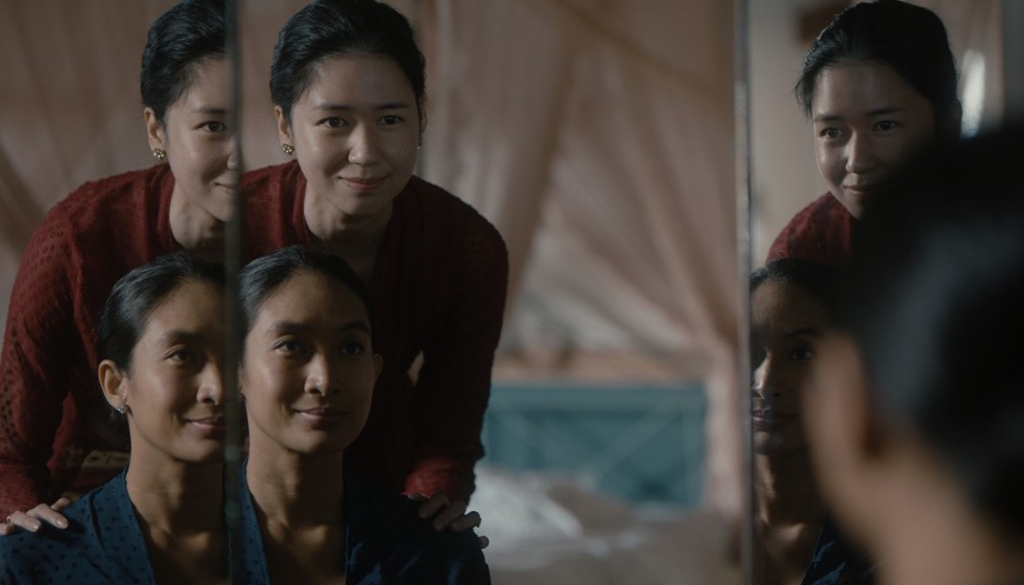Nana (Before, Now and Then)

Writer-director Kamila Andini’s (Yuni) 1960s Indonesia-set drama, Nana (Before, Now and Then), is one of contrasts. Her protagonist, Nana, is either put together to perfection (stomach cinched in tightly by fabric, hair twisted into a neat bun and punctuated with a decorative pin, a world of emotions barely perceptible underneath a serene, unchanging facial expression), or she’s out on a balcony in the night air, hair hanging loose, wistfully smoking a cigarette, her true self and the burden of past traumas given a moment to surface.
This duality runs persistently through Andini’s slow-burning but arresting film, reflective of the pressure on women to perform their role in society – to be a vision of motherhood, beauty, grace and resilience, regardless of what adversity or male brutality they face. It’s a concept not only confined to the historical context of the era but also equally true today.
The story unfolds against a politically tumultuous period in the country’s history as civil war reignites, a fresh coup leading to a violent anti-communist purge. The viewer follows Nana through the recent past, where she is escaping with a baby through the forest with her sister. If caught, she’ll be taken as a wife by the rebel leader. Next, her father is decapitated with a machete. Her missing husband (Ibnu Jamil) briefly appears between the trees. Timelines and dreams versus reality are unclear.
The audience finds her again in the present, remarried and living in relative comfort as the second wife of an older, wealthy Sudanese landowner, Mr Darga (Arswendy Bening Swara), but looked down upon by her snobbish peers; she is somewhat distant from her four children (her child from her first husband has died) except her youngest, Dais, while suffering the humiliation of a brazen affair. Her composure looks increasingly like it will spill over into a simmering rage. Her repressive state is haunted by dreams of the past that ebb and flow into the narrative. What finally breaks the spell is the unlikely friendship that springs up between Nana and her husband’s mistress, Ina.
The exacting approach to set design, costumes and rich cinematography provides an intoxicating visual feast that beautifully showcases traditional Indonesian culture. All is underlined by a transporting score. But what really lands the film’s refined elegance is the stunning Happy Salma, who is simply exquisite as Nana, while Laura Basuki brings a wonderfully free-spirited edge to her butcher, Ina.
Andini captures complex female emotions and relationships in nuanced and fascinating detail, as well as the secrets we all keep, whether in knotted buns or not. Subtly stirring, it’s a sensitively crafted, immersive cinematic experience that lingers on the senses well after the credits roll.
Sarah Bradbury
Nana (Before, Now and Then) does not have a UK release date yet.
Read more reviews from our Berlin Film Festival 2022 coverage here.
For further information about the event visit the Berlin Film Festival website here.
Watch the trailer for Nana (Before, Now and Then) here:

























Facebook
Twitter
Instagram
YouTube
RSS